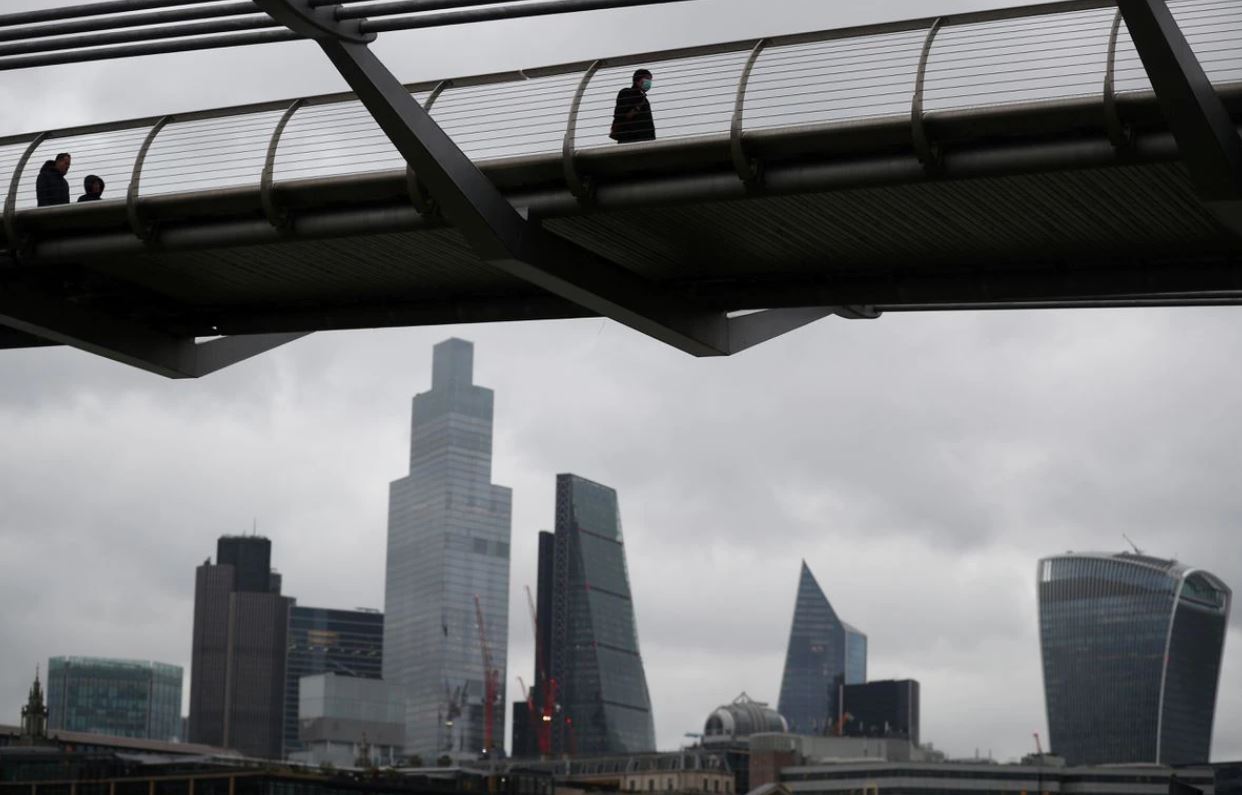British businesses reported faster growth in October, helped by fewer curbs on foreign travel, but the Bank of England is likely to be worried about record rises in the costs faced by businesses, which are being passed on to consumers.
A day before the BoE is due to announce whether it is raising interest rates, the IHS Markit Composite Purchasing Managers’ Index (PMI) rose to 57.8 in October from 54.9 in September, its highest since July and well above an initial flash estimate of 56.8.
The narrower services PMI rose to a three-month high of 59.1, up sharply from 55.4 in September and above the initial flash reading, as reduced COVID-19 testing and quarantine requirements led to greater foreign travel bookings.
The readings suggest the economy regained momentum last month – despite supply-chain disruptions that grabbed headlines as petrol stations ran short of fuel.
But a record proportion of businesses reported a surge in operating costs, according to the survey data, which goes back to 1996 for the services sector and to 1998 for the composite index which also includes manufacturers.
“Further evidence of inflationary pressures will no doubt be noted by those Monetary Policy Committee members considering voting for a rise in Bank Rate in November’s meeting,” Martin Beck, senior economic advisor to EY ITEM Club, said.
Financial markets expect the BoE to be the first big central bank to raise interest rates since the onset of the COVID-19 pandemic, increasing Bank Rate to 0.25 per cent from 0.1 per cent on Thursday, though many economists think it will wait until February.
Tight labour market conditions were a major factor behind higher costs, IHS Markit said.
“Many consumer service providers commented on unfilled vacancies after staff departures for higher wages, despite efforts to boost pay and conditions,” IHS Markit economics director Tim Moore said.
“The impact of staff shortages was another rise in backlogs of work and greater willingness to pass on higher costs to new customers,” he added.
Businesses were more likely to raise prices than at any time since these records began in 1999.
Governor Andrew Bailey said last month the central bank would have to act if it sees a risk that medium-term inflation or inflation expectations will exceed its 2 per cent target.
However, some policymakers view the surge in inflation – which the BoE’s new chief economist thinks could soon top 5 per cent – as driven overwhelmingly by temporary bottlenecks and higher energy prices which BoE rate rises will do nothing to ease.
“Those pressures still look predominately to be the result of the adjustment pains of an economy emerging from hibernation, which should give pause for thought,” EY ITEM Club’s Beck said.
IHS Markit said rising costs caused business optimism in the services sector to fall to its lowest since January.
“Respondents also cited worries about prolonged staff shortages and constraints on growth due to the supply chain crisis,” Moore said.







Click here to change your cookie preferences